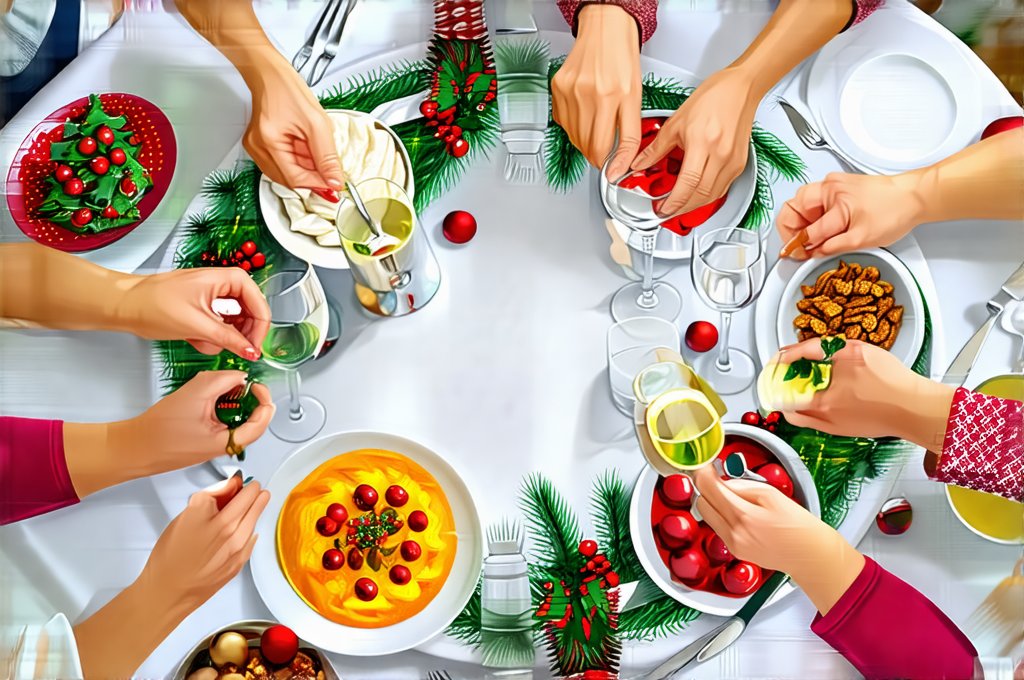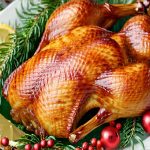The holiday season is often synonymous with joy, connection, and…indulgence. For many, it’s a time when dietary habits shift drastically, leading to overeating, stress, and ultimately, heartburn. Gastroesophageal Reflux Disease (GERD) impacts millions, and while navigating festive gatherings shouldn’t mean complete deprivation, understanding common triggers is crucial for minimizing discomfort and enjoying the celebrations. This isn’t about restricting fun; it’s about making informed choices that allow you to participate fully without paying the price later with painful symptoms. Recognizing these potential pitfalls empowers you to proactively manage your GERD and prioritize your well-being amidst the festivities.
The challenge lies in the fact that holiday gatherings are designed around food and drink, often featuring rich, flavorful dishes that are notorious GERD triggers. Social pressures can also contribute – politely declining tempting offers can feel awkward, or feeling obligated to partake in every celebratory bite. However, a little planning and awareness can go a long way. This article will explore the most common holiday foods and habits that exacerbate GERD symptoms and offer practical strategies for navigating these situations with confidence and comfort. It’s about balance – enjoying the season while safeguarding your digestive health.
Holiday Food Culprits: Identifying Common Triggers
Holiday spreads are often laden with ingredients known to relax the lower esophageal sphincter (LES), the muscle that prevents stomach acid from flowing back up into the esophagus. This relaxation allows for reflux, resulting in heartburn and other unpleasant GERD symptoms. Fatty foods are prime offenders; they take longer to digest, increasing pressure in the stomach and boosting acid production. Think rich sauces, fried foods, creamy desserts, and even seemingly innocuous things like gravy-soaked mashed potatoes. The sheer volume of food consumed during holiday meals also plays a significant role. Overfilling your stomach puts immense pressure on the LES, making reflux more likely.
Beyond fat content, certain spices are known to aggravate GERD. Spicy foods, while delicious, can irritate the esophageal lining and stimulate acid production. Peppermint, surprisingly, is another common trigger – despite being soothing for some digestive issues, it relaxes the LES. Chocolate, a festive favorite, also falls into this category due to its high fat content and potential for LES relaxation. Alcohol consumption is closely linked with GERD; it can weaken the LES and increase stomach acid production, making reflux more probable. Even caffeinated beverages, often abundant during holiday gatherings, can contribute to symptoms.
Finally, consider the combination of foods. A meal that’s high in fat and spices and accompanied by alcohol is a recipe for digestive distress. It’s not always about individual ingredients but the synergistic effect of multiple triggers. Being mindful of these combinations and making substitutions when possible can significantly reduce your risk of experiencing GERD symptoms. Remember, small adjustments can make a big difference. If you struggle to identify what’s triggering symptoms, consider reading through a GERD diet guide.
Navigating Social Situations & Holiday Meals
One of the biggest challenges during the holidays is balancing dietary needs with social expectations. It’s perfectly acceptable to politely decline certain foods or request modifications. For example, asking for a smaller portion size or requesting grilled instead of fried options is reasonable and shouldn’t be viewed as disruptive. Preparing yourself mentally beforehand can also help you resist temptation. Visualize yourself confidently navigating the meal while making healthy choices. Bringing a GERD-friendly dish to share ensures you have at least one safe option available, and it’s often appreciated by others with dietary restrictions.
Don’t fall into the trap of thinking you need to “save room” for dessert when you’re already feeling full from the main course. This is a common mistake that leads to overeating and exacerbates GERD symptoms. Instead, savor smaller portions and enjoy the company of your loved ones. Focus on conversation and connection rather than solely on food. Staying hydrated with water throughout the meal can also help dilute stomach acid and aid digestion. Avoiding lying down immediately after eating is crucial – gravity helps keep stomach contents where they belong. Wait at least 2-3 hours before reclining.
Remember, it’s your health, and prioritizing your well-being isn’t selfish; it’s self-care. Don’t feel guilty about making choices that support your digestive health. A little preparation and mindful eating can allow you to fully enjoy the holiday season without sacrificing your comfort. Learning how to eat with joy can help make these choices easier.
Pre-Meal Strategies for GERD Management
Before even arriving at a holiday gathering, proactive steps can minimize potential issues. – First, never go to a party hungry! Arriving ravenous increases the likelihood of overeating and impulsive food choices. Have a small, GERD-friendly snack an hour or two before the event – perhaps a handful of almonds or a banana – to take the edge off your appetite.
Second, consider taking preventative measures if appropriate for you (and after consulting with your healthcare provider). Over-the-counter antacids can provide temporary relief, but they’re not a long-term solution. H2 blockers or proton pump inhibitors (PPIs) might be options, but always discuss their use with your doctor before taking them, especially if you have other medical conditions or are on medication.
Finally, mentally prepare a list of acceptable food choices and potential substitutions. Knowing what to look for – grilled fish instead of fried chicken, for example – makes navigating the buffet easier and reduces impulse decisions. This isn’t about deprivation; it’s about making informed choices that support your digestive health. Understanding food triggers beforehand can be incredibly helpful.
During-Meal Tactics for Symptom Prevention
Once you’re at the gathering and facing a tempting spread, mindful eating is key. – Start by surveying all food options before filling your plate. This allows you to make conscious decisions rather than grabbing the first thing you see. Prioritize lean proteins, vegetables, and whole grains over high-fat foods and sugary treats.
Second, practice portion control. Smaller portions are easier to digest and reduce pressure on the LES. Use a smaller plate if available or consciously limit the amount of food you put on your plate. – Third, chew your food thoroughly. This aids digestion and reduces the workload on your stomach. Eating slowly also allows your body to register fullness cues more effectively, preventing overeating.
Avoid drinking large amounts of liquids with your meal, as this can dilute stomach acid but also increase stomach volume and pressure. Sip water between bites instead.
Post-Meal Recovery & Relief Tips
Even with the best preventative measures, symptoms may still occur. After eating, avoid lying down for at least 2-3 hours. Elevate the head of your bed if you experience nighttime reflux – using pillows or a wedge pillow can help prevent stomach acid from flowing into the esophagus while you sleep. – Gentle movement, such as a short walk, can aid digestion and relieve bloating.
If heartburn occurs despite these efforts, consider taking an over-the-counter antacid (as appropriate and after consulting with your healthcare provider). However, remember that antacids provide temporary relief and don’t address the underlying cause of GERD. – If symptoms are severe or persistent, consult your doctor to rule out other potential issues and discuss long-term management strategies. Prioritizing self-care and listening to your body’s signals is crucial for maintaining digestive health throughout the holiday season and beyond. It may also be helpful to learn how to avoid overload during these times. If you have leftovers, make sure you’re following guidelines on leftovers reactions.


















